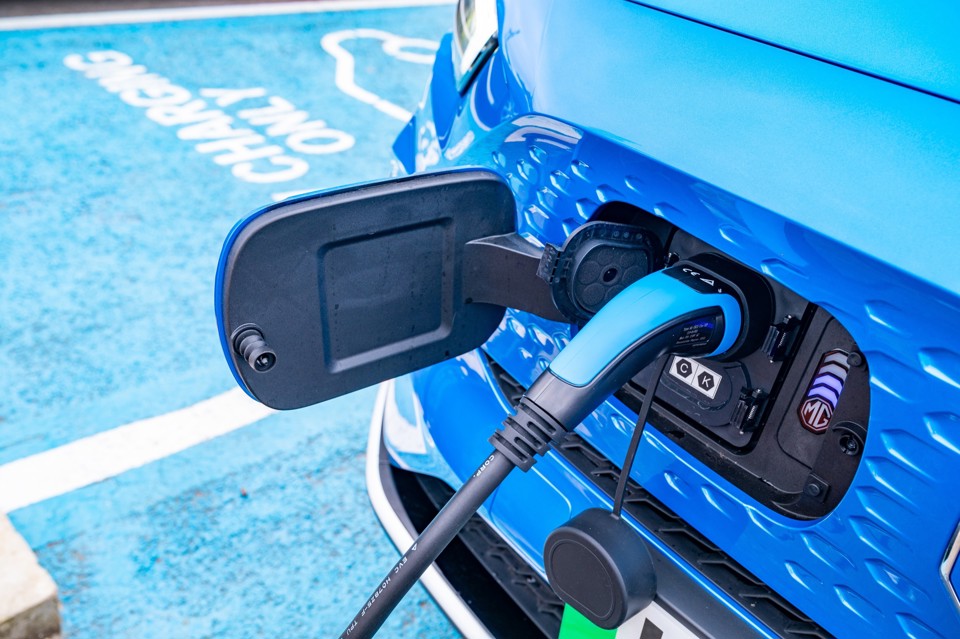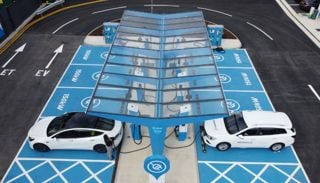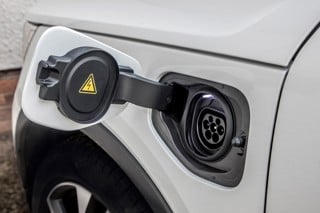More than two-out-of-five electric vehicle (EV) charge points had connection issues at major supermarkets, new research from LeaseLoco suggests.
Using data from Zap-Map, the car leasing comparison site analysed the operational status of chargers located on site at Aldi, Asda, Lidl, Morrisons, Sainsburys, Tesco and Waitrose.
Taking a sample of 20 UK cities, excluding London, and only looking at supermarket sites within a 12-mile radius of the city centre, LeaseLoco found a large number of charging devices were out of order.
Across the seven supermarkets, where the charger status was live and available on Zap-Map, 43% charging devices had connection issues.
John Wilmot, CEO of LeaseLoco, says that the research shows that pinning your hopes on your local supermarket to top up your car battery could be a “frustrating experience”.
“It also highlights the challenges of relying on a public charging infrastructure - including charging stations at supermarkets - that is not 100% reliable and where demand outstrips supply,” he added.
Morrisons had the most comprehensive charger status data on Zap-Map and LeaseLoco found only half (50%) of the chargers were working on the dates in January when the research was conducted.
For example, of the 13 EV chargers on site at the four Morrisons stores within a 12-mile radius of Swansea, Zap-Map status data indicated that 12 were out of order. While only two out of 12 chargers were working at the four Morrisons stores within a 12-mile radius of Portsmouth.
Asda had the highest percentage of working EV chargers – almost three-quarters (74%) – based on charging stations where there was available status data on Zap-Map.
Although Tesco sites had a lower percentage of working chargers than Morrisons at 49%, this was based on fewer devices, as in many cases online status data was not available for Tesco charging stations, and these chargers could not be considered.
Wilmot continued: “Although some car owners will use public chargers infrequently, as they only need their vehicles for short distances and can charge at home, many will need to use the public network to keep their cars on the road.
“As more people switch to electric vehicles, the need for a fit-for-purpose charging infrastructure will intensify. And if we’re to avoid seeing a repeat of the scenes witnessed over Christmas, with drivers queuing for hours to charge their EVs, this has to be a priority.”
LeaseLoco looked at that status of EV chargers on the sites of the seven major supermarkets in the following 20 major UK cities: Birmingham; Bristol; Brighton; Cambridge; Cardiff; Edinburgh; Exeter; Glasgow; Ipswich; Leeds; Leicester; Liverpool; Manchester; Middlesbrough; Newcastle; Norwich; Nottingham; Plymouth; Portsmouth; Southampton; and Swansea.
Research was conducted on the Zap-Map app on January 14 and 15.
The percentage of working EV chargers on site at the seven major supermarket chains, looking at stores in 20 major UK cities and within a 12-mile radius of the centre:
| Supermarket | % of working EV chargers |
| Aldi | Not enough data |
| Asda | 74% |
| Lidl | 60% |
| Morrisons | 50% |
| Sainbsury's | 60% |
| Tesco | 49% |
| Waitrose | 68% |
























Login to comment
Comments
No comments have been made yet.